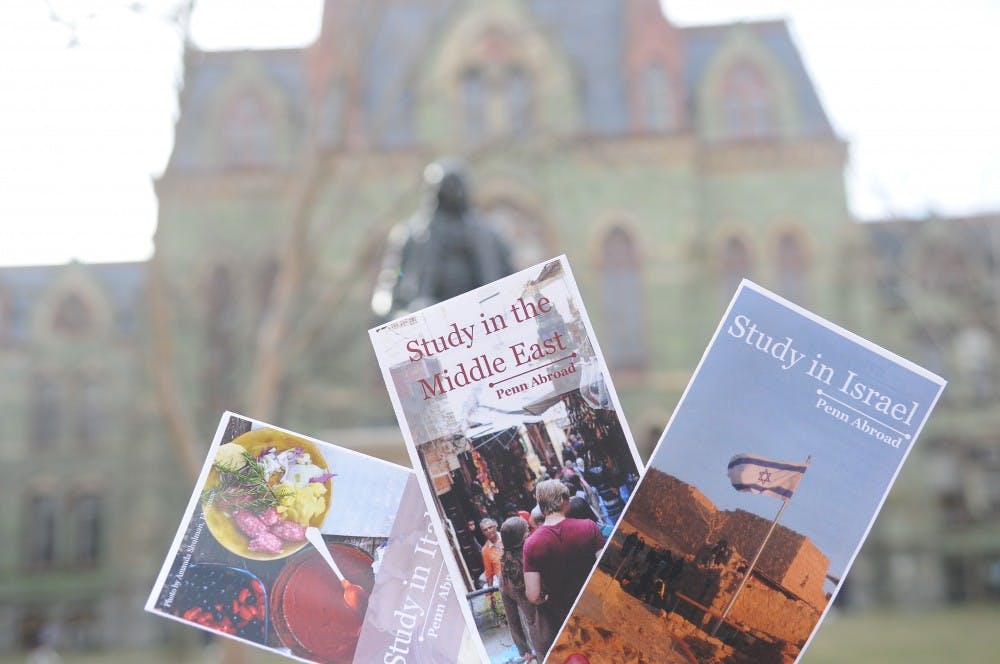Walking into the austere, Soviet–like Penn Abroad building fills me with dread. The grim architecture and gloomy weather must be bad omens. I arrive on time for my thirty–minute appointment slot, check in with the receptionist and take a seat in the DMV–esque waiting room. My program advisor greets me twenty–five minutes later.
The meeting’s even worse than the wait. All my questions are met with vague answers: “the acceptance rate depends on how many people apply.” Thanks, but couldn't you say the same thing about Penn’s acceptance rate?
She asks how many classes I plan to take pass/fail. When I respond “none,” she replies, “I always ask because some students wonder if they can take all classes pass/fail.” I want to study in Spain, not drink my way through the continent. I’m not trying to be part of an expensive partym but the Penn Abroad office clearly doesn’t expect me to take my academics seriously outside of Penn.
My program advisor tries to dissuade me from studying abroad by harping on the grading differences between Spain and the US: 'Getting a B/B+ is considered quite good in Spain.' If I’m not prepared to receive worse grades than I do at Penn, I shouldn’t apply.
Despite the string of pessimistic warnings, she can’t answer most of my academic questions. I'd have to schedule another appointment for that.
Penn Abroad believes 'studying abroad is one of the most exciting opportunities available to a Penn undergrad.' The university touts its strong programs, but I've heard students challenge this tagline as soon since I started the application process. Penn Abroad’s options are deceiving—many have strict foreign language requirements or only enroll students from a specific school. I lived in Spain for a year of high school and wanted to go back.
But abroad programs charge full Penn tuition, with some programs adding additional costs. Many international schools cost less than Penn, but the university refuses to lose precious tuition money. At that price point, studying abroad should be an experience as exceptional as attending Penn.
We, the students, value and glamorize the abroad experience, whether it’s for partying, traveling, or “self–discovery." Many of my friends will be abroad, and I feel pressured to leave because I don't want to be stranded. Solo trips to Copa seem like an execrable alternative to exploring Europe with my friends. Of course, traveling would be fun—the social media storm of Oktoberfest pics last semester proved that. But the payoff doesn't feel worth the price.
Study abroad offers an education out of the classroom—something you don’t necessarily receive at Penn. I still believe there is more to education than what you can get from a textbook, regardless of the language. I’m just lucky enough that I don’t have to leave Penn to get the education that comes inside and outside the classroom. My application remains open and blank. I have a feeling it’ll stay that way.
Read the counterpoint here
.

